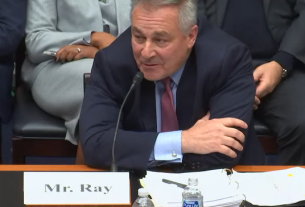Coinbase has agreed to pay $100 million to settle allegations from New York’s Department of Financial Services (NYDFS) that failures in the cryptocurrency exchange’s compliance program made it “vulnerable to serious criminal conduct, including … fraud, possible money laundering, suspected child sexual abuse material-related activity, and potential narcotics trafficking,” the regulator announced Wednesday.
Under the agreement, Coinbase will pay a $50 million penalty and invest another $50 million to improve its compliance function over the next two years.
Specifically, Coinbase’s transaction monitoring system, which flags suspicious activity, saw a backlog that grew to more than 100,000 unreviewed alerts in late 2021, the regulator found. That prevented the company from filing timely suspicious activity reports, and at times, potentially concerning activity went uninvestigated for months, NYDFS said.
“Coinbase failed to build and maintain a functional compliance program that could keep pace with its growth,” NYDFS Superintendent Adrienne Harris said in a statement.
Coinbase’s platform saw 25 times the level of transaction activity in November 2021 that it did in January 2020, NYDFS found. The company also saw 15 times as many customer signups by May 2021 as it had in January 2020, the regulator noted, and a backlog of 14,000 customers needing enhanced due diligence had gone unaddressed.
That required NYDFS to install an independent monitor in early 2022, Harris said. Under Wednesday’s agreement, the monitor will continue to work with Coinbase for another year — and possibly more, if the regulator deems it necessary.
Coinbase’s customer onboarding requirements were treated as a “simple check-the-box exercise,” NYDFS said in its press release Wednesday.
“It is critical that all financial institutions safeguard their systems from bad actors, and the Department’s expectations with respect to consumer protection, cybersecurity and anti-money laundering programs are just as stringent for cryptocurrency companies as they are for traditional financial services institutions,” Harris said.
In a blog post Wednesday, Coinbase Chief Legal Officer Paul Grewal said the company has “taken substantial measures to address these historical shortcomings and remains committed to being a leader and role model in the crypto space.”
Grewal said he believes the company’s compliance investment “outpaces every other crypto exchange anywhere in the world” and that customers should feel safe while using the platform.
Regulators have observed problems within Coinbase’s AML controls as far back as 2018, a year after it became licensed to transmit money in New York state, The New York Times reported.
Other crypto developments
Coinbase’s penalties come at a time when regulators have crypto in their cross-hairs. The Federal Reserve, Federal Deposit Insurance Corp. (FDIC) and the Office of the Comptroller of the Currency (OCC) issued a joint statement Tuesday, warning banks of “a number of key risks associated with crypto-assets and crypto-asset sector participants.”
The Southern District of New York, meanwhile, launched an FTX task force Tuesday to return potentially billions of dollars to customers who fell victim to that crypto exchange’s collapse. U.S. Attorney Damian Williams called the task force launch an “all-hands-on-deck moment.”
That effort launched on a day when FTX’s former CEO, Sam Bankman-Fried, entered not guilty pleas on eight charges, including wire fraud. Two other former FTX executives pleaded guilty last month to charges that could land one in prison for 110 years.
Elsewhere in the crypto universe, crypto payments company Wyre is shutting down and terminating services this month after a failed acquisition by tech platform Bolt Financial in September.
The shutdown, originally reported by Axios, marks another victim of the ongoing crypto winter. Wyre was previously valued at $1.5 billion.
“We’ll continue to do everything we can, but I want everyone to brace themselves for the fact that we will need to unwind the business over the next couple of weeks,” Wyre CEO Ioannis Giannaros told employees in a note seen by Axios.
Via email and without further comment on the shutdown, he told Axios, “We’re still operating but will be scaling back to plan our next steps.”



